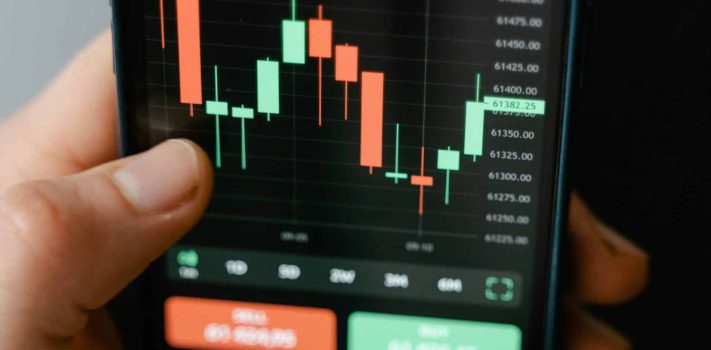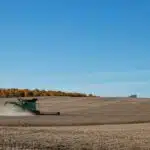- Education: A solid educational background, typically in finance, economics, or a related field, is essential. Many commodity brokers hold at least a bachelor’s degree, although some may pursue advanced degrees for further specialization. There can be exceptions; it is not a requirement to have a bachelor’s degree, but there does need to be a solid understanding of business, futures, options, market exposure, and identifying risks. Sometimes, individuals are brought up through the school of hard knocks. Having traded themselves or started a business requiring the use of the futures market could give them the education they need to be a commodity broker.
- Licensing: All commodity brokers at Paradigm Futures must have a series 3 license before they can solicit futures and options business. If you are interested in becoming a commodity broker for Paradigm Futures and you have gone through the interview process, we would offer to become your sponsor. Current brokers used Securities and Insurance Training for our test prep.
- Market Knowledge: A deep understanding of the commodities market is crucial. This includes knowledge of various commodities, their supply and demand dynamics, price trends, geopolitical factors affecting commodity prices, and trading strategies. Commodity Futures are much different than what the typical individual is used to. Dealing with the futures months and rolling positions to different months can be a hang-up for many potential commodity brokers and investors. Another factor is dealing with a margin account. Understand that you are not putting up the contract’s total value when you enter the market; instead, it is usually 10-15% of the contract value (depending on volatility). Options are another significant portion of our business and it is essential for commodity brokers to understand when and how to use options.
- Analytical Skills: Analyzing market data, identifying trends, and making informed predictions about future price movements are essential for success as a commodity broker. Strong analytical skills will help you make sound trading decisions. Your clients want to know what you see when you look at a market. Sometimes, clients don’t spend all day looking at the charts and watching the news. It is your job as a commodity broker to be that soundboard for clients to get them up to speed on where support levels might be, where pivot points are, moving averages, retracements…the list goes on.
- Communication Skills: Effective communication is key when dealing with clients, understanding their needs and risk tolerance, and explaining complex market concepts. Good interpersonal skills are essential for building and maintaining client relationships. This also plays off of the bullet point above in Analytical Skills. Your clients do not always have time to track the markets. So it is up to you to build and communicate a narrative to the clients. In time, you will start to develop your communication skills. Something that sets you apart from the same crusty used car salesman. Your clients don’t want to hear the same thing constantly; they want character. They also wish to have consistency; it can sometimes be a bit like milking cows, but consistent communication will go a long way.
- Risk Management: Commodity trading can be volatile, so understanding and managing risk is crucial. This involves implementing risk management strategies, such as setting stop-loss orders and diversifying portfolios, to minimize potential losses. Sometimes, investors are confused about what it means to be a commodity broker. Your commodity broker’s job is just as much about managing the risk and capital as it is about getting the direction of a market correct. Sometimes, it’s about managing your losses and protecting your capital because we know that not every trade is a winning trade.
- Technology Proficiency: In today’s digital age, proficiency with trading platforms and other technology tools is essential for commodity brokers. This includes understanding how to execute trades electronically, analyze market data using software tools, and stay updated on market news and developments through online resources.
By possessing these seven key attributes, aspiring commodity brokers can increase their chances of success in this challenging yet potentially rewarding field. Another way to increase your success as a commodity broker is building a client list. You can obtain this by using leads from Paradigm Futures, or purchasing an existing book of business.
Commodity brokers typically will be incentivized by the number of contracts they trade. So too make sure you can cover your expenses you will want to try and identify how much volume you think you will be creating. A potential client can be a producer of a commodity. Producers grow, mine, pump, refine, or build commodities and they have an exposure to futures price fluctuations. Their risk is if they produce a commodity and the price of the product goes down.
Conversely a client can be an end-user of a commodity. They need to purchase a product that has exposure to the commodity markets so they need help managing the risk of a rising market. A client can also be someone who is looking to speculate in price movement of a market up or down. It is always priority to know you customer. Not everyone is suitable to trade futures and options and there are significant amounts of risk when you trade futures or options. So, it is your job as a commodity broker to understand where those risks are.
Paradigm Futures commodity brokers are here to help you trade futures contracts. Our specialty is guiding investors in commodity markets they are interested in. When it comes to corn futures, we are ready to help you. Contact us today to get started.
This material has been prepared by a sales or trading employee or agent of Paradigm Futures, and is, or is in the nature of, a solicitation. This material is not a research report prepared by Paradigm Futures. By accepting this communication, you agree that you are an experienced user of the futures markets, capable of making independent trading decisions, and agree that you are not, and will not, rely solely on this communication in making trading decisions.
DISTRIBUTION IN SOME JURISDICTIONS MAY BE PROHIBITED OR RESTRICTED BY LAW. PERSONS IN POSSESSION OF THIS COMMUNICATION INDIRECTLY SHOULD INFORM THEMSELVES ABOUT AND OBSERVE ANY SUCH PROHIBITION OR RESTRICTIONS. TO THE EXTENT THAT YOU HAVE RECEIVED THIS COMMUNICATION INDIRECTLY AND SOLICITATIONS ARE PROHIBITED IN YOUR JURISDICTION WITHOUT REGISTRATION, THE MARKET COMMENTARY IN THIS COMMUNICATION SHOULD NOT BE CONSIDERED A SOLICITATION.
The risk of loss in trading futures and/or options is substantial and each investor and/or trader must consider whether this is a suitable investment. Past performance, whether actual or indicated by simulated historical tests of strategies, is not indicative of future results. Trading advice is based on information taken from trades and statistical services and other sources that (Insert IB Name) believes are reliable. We do not guarantee that such information is accurate or complete and it should not be relied upon as such. Trading advice reflects our good faith judgment at a specific time and is subject to change without notice. There is no guarantee that the advice we give will result in profitable trades.









